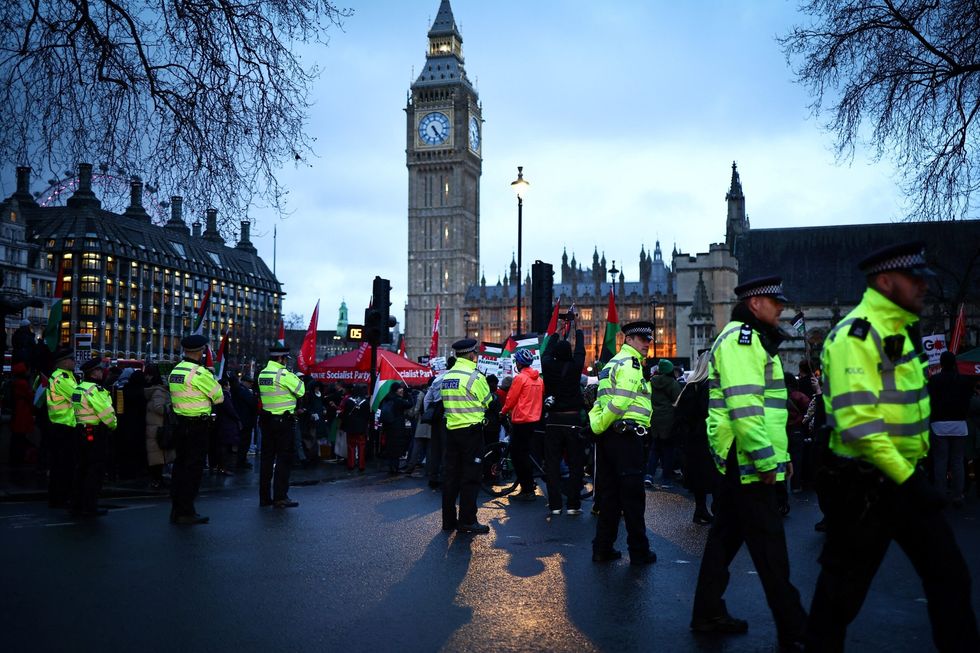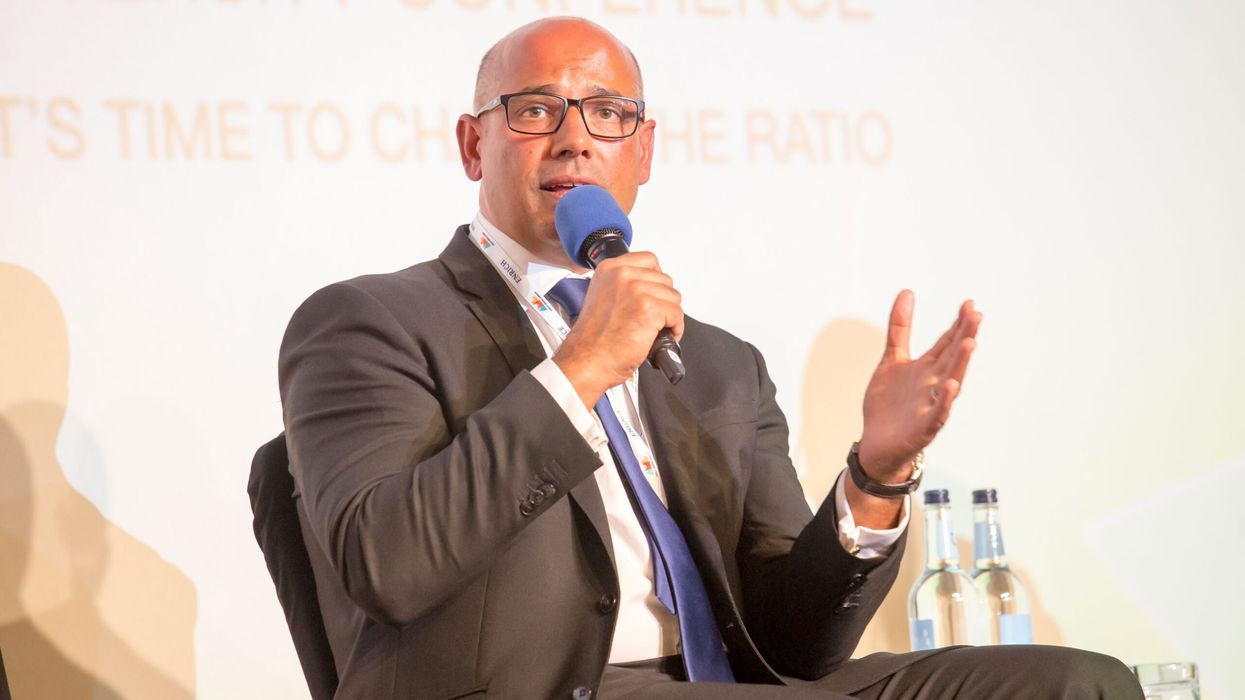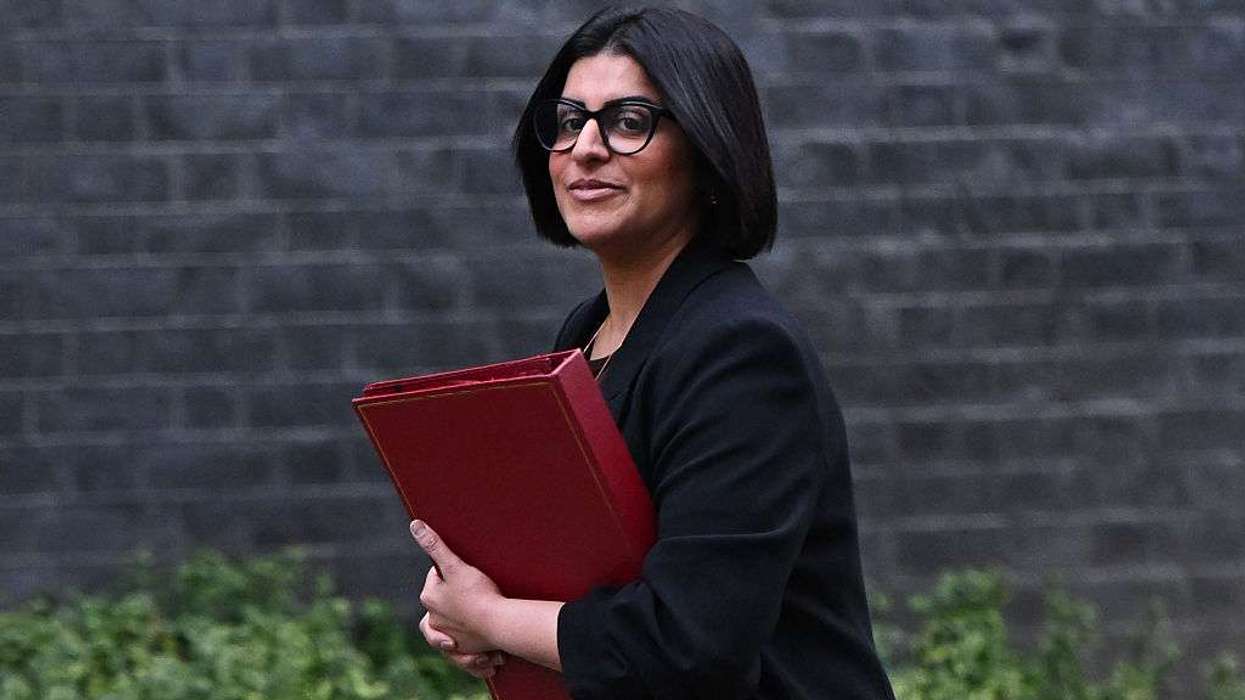THE police are losing the trust of their communities because of weak leadership, “wilful blindness”, and politicians “bullying” chief constables, the country’s former top south Asian cop has told Eastern Eye.
In a wide-ranging interview for this paper, Neil Basu, former Metropolitan Police assistant commissioner and head of counter terrorism, said he was “exhausted” that his former colleagues were still talking about institutional racism 31 years after the racist murder of black teenager, Stephen Lawrence.
He said police chiefs were “scared” of a backlash among rank-and-file officers, even though the term was defined by Sir William Macpherson in his inquiry report into the Lawrence murder 25 years ago in 1999.
“I think it is the fear about a backlash, and it is the fear of their leadership being exposed,” said Basu.
“We underestimate the brightness of our workforce – it’s possible for us to explain it.
“But you can't just go out and say it, as unfortunately I'm doing now, and then expect your workforce not to get defensive about it.
“So, your leadership is [about] explaining it, and I think it's weak leadership not to explain it, because what you're doing is you're putting the feelings of your frontline [officers] before the feelings of the public, who have lost trust and confidence in you.
“That is inward looking, and it is selfish, and it's narrow, and you're not going to win the trust and confidence back from people who don't like you, by pandering to what you think might be a hostile reaction from your frontline.”
He cited what happened to the Avon and Somerset chief, Sarah Crew, when last year (June 2023) she said her force was institutionally racist.
The police federation described it as “a false narrative”.
Political interference
Basu told Eastern Eye that police chiefs were “right to be worried”.
“But it's their job to deal with that, it's their job to make sure that police officers understand that without that trust and confidence, they're not going to get help and obligate intelligence, they're not going to get witnesses,” he continued.
“And people are going to stand around photographing them and putting it up online and goading them to try and make them do something, instead of actually helping them when they're in trouble.
“I think they're worried, but it is about their leadership.
“It's about the way they run their organisations, and nobody wants to look like they're running a failing organisation.
“I sat on the board of a failing organisation, so I can understand that they're in that place as well.
“I don't think they think this is the thing, but it would really upset me, maybe they don't think it's a problem.
“Maybe some of those chief constables literally don't care, they don't think it's a problem, and they're not really interested.”

Last year (March 2023), the then home secretary, Suella Braverman told the Commons that institutional racism was not “a helpful term to use”.
She said it was “an ambiguous, contested and politically charged term that is much misused and risks making it harder for officers to win back the trust of communities.”
The former head of counter terrorism warned that politicians were interfering with operational matters.
“I certainly think they're afraid of some of their political masters who've made it very clear that no chief should be talking in this language,” reacted Basu.
“Some of those politicians have gone, but they're still there in the background, and they're still making noise.
“There's a lot of police crime commissioners who would back that approach, because it's a political approach, and that's policing being politicised.
“Without fear or favour means something.
“It means you have to police for everybody, not just the people you like, and I think the unfortunate thing is, is in trying to keep their political masters happy at their frontline happy.
“There's a really broad cross section of the community now who don't like what policing stands for or what it's doing.
“I think [Dame Louise] Casey said it best – you've lost the confidence of black and brown people, you've lost the confidence of women and girls, you've lost the confidence of the gay community in London.
“As a consequence of that, you add all those up, it's the majority of the public, not the minority you’ve literally lost.”
Cultural competence
Last week (20), the Met commissioner faced calls to resign over the policing of pro-Palestinian protests in London.
The force apologised after a film clip showed an officer describing the chief executive of the Campaign Against Antisemitism, Gideon Falter, as “openly Jewish” while he tried to cross a demonstration in London.
Falter was wearing a kippah [Jewish skullcap] when he was stopped in the Aldwych area of London and threatened with arrest.
The prime minister, Rishi Sunak, said he was “appalled” by the incident.
But a 15-minute film, embedded in a Sky News webpage, showed the full context of the encounter.
It prompted former Met chief superintendent, Dal Babu, to suggest that Falter should have been arrested for breach of the peace.
Basu told Eastern Eye that such incidents would only increase while confidence in the police continued to decline.
“At the moment, the very visible presence of losing that trust and confidence is people who are citizen journalists with a very sophisticated cameras in their hand, taking videos, editing them, and putting short bits up online.
“This is why I thank Sky who have videoed the whole thing and put the whole thing out there for us all to see.
“It's interesting policing won't do that for itself because of prejudice to investigations, because it sets a precedent, because they don't want to identify their cops.
“But we're getting to a world now where we're gonna have to do that, because Sky won't always be there to bail us out, and show that that poor sergeant, who was actually incredibly restrained and tolerant.
“That tolerance and that professionalism were there for everyone to see.
“Now, what's interesting is it was clouded by that one clumsy phrase that that police officer used.
“There is something about cultural competence – and [this is] where words are important, because that almost turned into an absolute disaster on the back of one phrase, and then the inability of senior people and senior communications professionals to see that that was a clumsy and inappropriate phrase.”
Public disservice
Politicians, Basu said, have interfered with policing as far back as 1984, during the miners’ strike.
But he witnessed political interference personally in 2008.
“I always have been, in my 30 years of my career, surrounded by a sort of politics.
“Politicians think that they can start to direct and intimidate senior police leaders through the medium of the press.
“This has become a very dangerous thing, and it goes right back.
“The first time I saw it, I was in [Met commissioner, Sir Ian] Blair's office, and I watched the mayor of London, take Ian Blair out.
“There was a whole series of incidents, but at the end of the day, [it was] I don't like you, I think your politics are different from mine, and you're going.
“Because I was working in Metropolitan Police at the time, and in that office, I will tell you that the actual crime figures, the way that the Metropolitan Police was performing, and it has to be competent as well as non-prejudiced, but it was competent.
“So, the politics were just ‘I don't like you, so I'm not going to work with you, and you're out.
“That's a disservice to the public, and probably the one thing that politicians currently do not like are police officers talking about operational independence, but it's incredibly important that it’s a safeguard for the public.
“No politician should be directing a chief officer about what is allowable, who to arrest, where to police work, these are operational policing decisions, divorced from politics, to make sure that politicians don't use policing as a tip of the spear of the state.”
Culture wars
Basu said that when it came to tackling institutional racism, “things were on an upward trajectory” until 2010.
But dealing with terrorism, Islamophobia and the racism from the Brexit referendum caused the focus to be diverted elsewhere.
“I don't actually think it was malicious, I don't think anyone said we're not doing that diversity stuff anymore,” he explained.
“I would caveat that by saying that at the moment, there's an awful lot in the political culture wars, which is precisely that, to say that ‘let's not talk about this anymore, it's a load of rubbish.’
“I've actually seen very senior politicians say that – which is utterly crazy, because at the same time, they are making it absolutely clear to chief constables that they cannot exist without the trust and confidence of the public and they have to win it back.
“When you're saying, ‘I don't believe in all of that diversity, equality and inclusion, nonsense, I don't believe in that training, it's all rubbish, but by the way, just go and build up that trust and confidence all those communities you've let down.’
“It's not just about race anymore, after the Casey report it's about misogyny and homophobia – it’s institutionalised prejudice, which I think is a symptom of bullying.
“It's an institutional culture, it’s a very commanding control, it's militaristic, it's hierarchical, and it does attract people who enjoy abusing power.
“It also desensitises people over the course of a career, and that can make people abuse power.”
Eastern Eye analysed the stop and search figures for the Met for January to December in 2022 and 2023.
It found that if you are black, you are three times more likely to be stopped and searched.
South Asian are stopped and searched proportionately the same as white people.
“So, it's internal as well as external in the way we stop and search and use force on minority communities is completely disproportionate.
“All of it is obvious, and it is there, and yet we choose to try and look at the data again, change the language.
“So, I think that's willful blindness, and I think this is the this is the one that is forefront in chiefs’ minds, I think is what they are trying to do is maintain the morale of their frontline, which has been battered by so many different things, and they are scared that the frontline will see and react the way they did in 1999 [after the Macpherson report].”
Weak leadership
But he said the chief constable’s comments warranted more widespread coverage.
“This was a kind of message through Staffordshire University, it wasn't a major interview on the (BBC) News at 10, there wasn't a huge social media feed,” said Basu.
“It wasn't an opinion piece in the Daily Telegraph, which is where policing would normally put its opinions.
“It was a university where he was debating with lots of other people over the course of the day.
“So, it's not the bombshell that I would want it to be, I want people to understand that this is incredibly important for people who look like me.”
So, could things change for the better?
The latest government figures, which appear to be out of date, suggest that in the chief police officer ranks, 15 of the 237 (6.3 per cent) described themselves as non-white.
We contacted the NPCC and the Home Office to understand how they arrived at these figures.
The NPCC did not respond, and the Home Office failed to answer the question.
Eastern Eye went through all 43 forces in the country and examined the ethnic make-up of the senior leadership teams – assistant chief constable to chief constable rank – where they set operational outcomes and make strategic decisions.
It appears that just four chief officers of colour are on senior management boards.
They are:
- Umer Khan, a commander [assistant chief constable rank] at the City of London Police.
- Assistant Chief Constable [ACC] Wasim Chaudhry at Greater Manchester Police.
- ACC Dennis Murray at Thames Valley Police.
- ACC Osman 'Oz' Khan at West Yorkshire Police.
Independently, we found a total of 10 chief officers of colour – at least four are in temporary positions.
Eastern Eye has also learnt from a police source that at least three of the 15 chief officers included in the Home Office data retired in 2023 and 2024.
We also asked the Home Office about its position on whether it accepted that forces were institutionally racist.
Again, it failed to answer the question, and instead issued a generic statement that “racism has no place in policing”.
Emotional exhaustion
So, why is there “weak leadership” in the police?
“This is not a recent expression, but it was quite a popular one in management speak over the last 10 to 20 years – it is willful blindness,” explained Basu.
“So, you know you've got a problem, because it's been pointed out many times, your communities are telling you, they don't trust you. they're not confidence in you, and that's because you are prejudiced towards them.
“Your data shows you're completely disproportionate, lots of the things you do internally as well as externally.
“You don't recruit you don't promote, you don't retain enough people of colour, or enough women, so this is a much wider prejudicial issue.
“When they complain or when they make a mistake, the organisation comes down on them like a ton of bricks, completely disproportionately compared to their white male colleagues, that data is there.”
Basu said there were plenty of action plans, but the service needed the words to back them and show police leaders were serious about getting rid of racism from the ranks as well as the institution.
“You can't tackle it unless you acknowledge the problem, and we're still talking about it.
“The curious thing is that we appear to be having actions without words at the moment.
“I've read the National Police Chiefs’ Council website.
“They have this very detailed action plan, there's a good narrative in the action plan, there's no doubt about that.
“It's a great objective to do, and all chief constables have signed up to that.
“So, I'm assuming that in 43 forces in England and Wales, Scotland, Northern Ireland, there's a lot of work going on to reduce inequality and to stop prejudice.
“I know there's a lot going on in the Met, but the action doesn't mean anything without the words, and the reason I say that is [because] this dancing on the head of a pin about the definition of institutional racism.
“It tells people like me and black community leaders and black communities and minority communities that you don't really believe this because the person we trusted was William Macpherson came up with the answer.
“We trusted him, and we trusted his definition and you did accepted it, so why are you not accepting it now?
“Why are you trying to invent a different language?
“Why are you continually looking at the data you should have been collecting since 1999.”
Basu revealed that in 2018 a previous head of equality at the National Police Chiefs’ Council could not get responses from some police forces because they did not collect data.
“The fact that we're still talking about it since 1999 is incredibly emotional and incredibly exhausting.
“For me, having spent 30 years in a profession where it's the one thing I deeply regret, it is the one thing I'm ashamed of.
“I walked into retirement with this as the backdrop of my profession with trust and confidence collapsing, and I found it emotional and exhausting.
“But it's way more emotional and way more exhausting if you're a young black boy who is continually being stopped and searched and having force used against them.
“Or if you're one of my black and Asian colleagues who can't get promoted or is still suffering abuse inside the force, it's much more exhausting for them."




